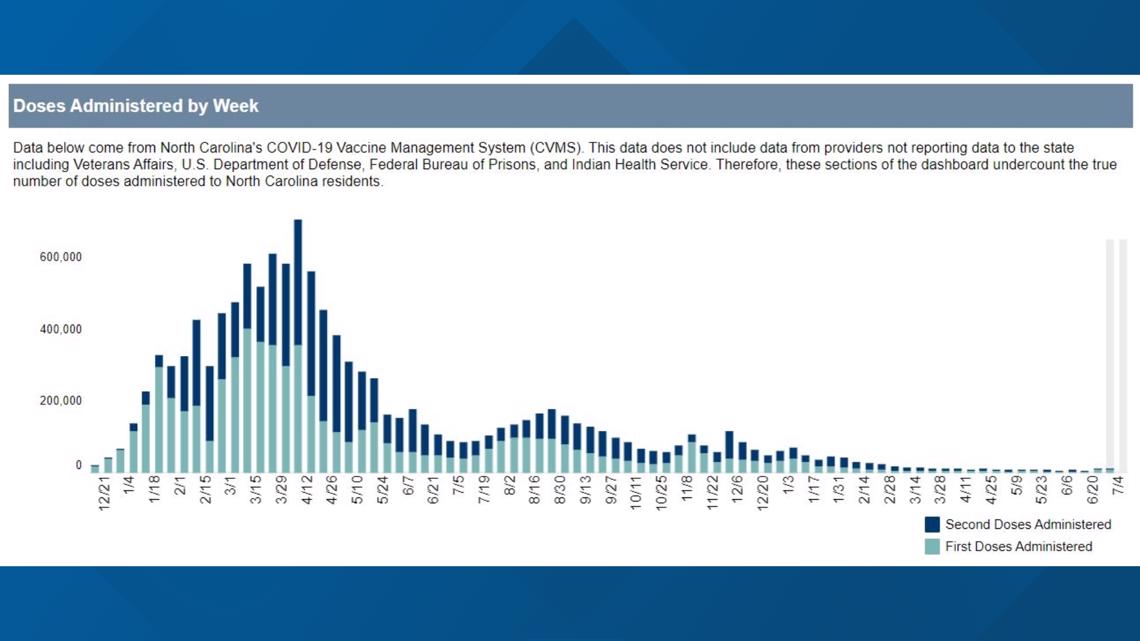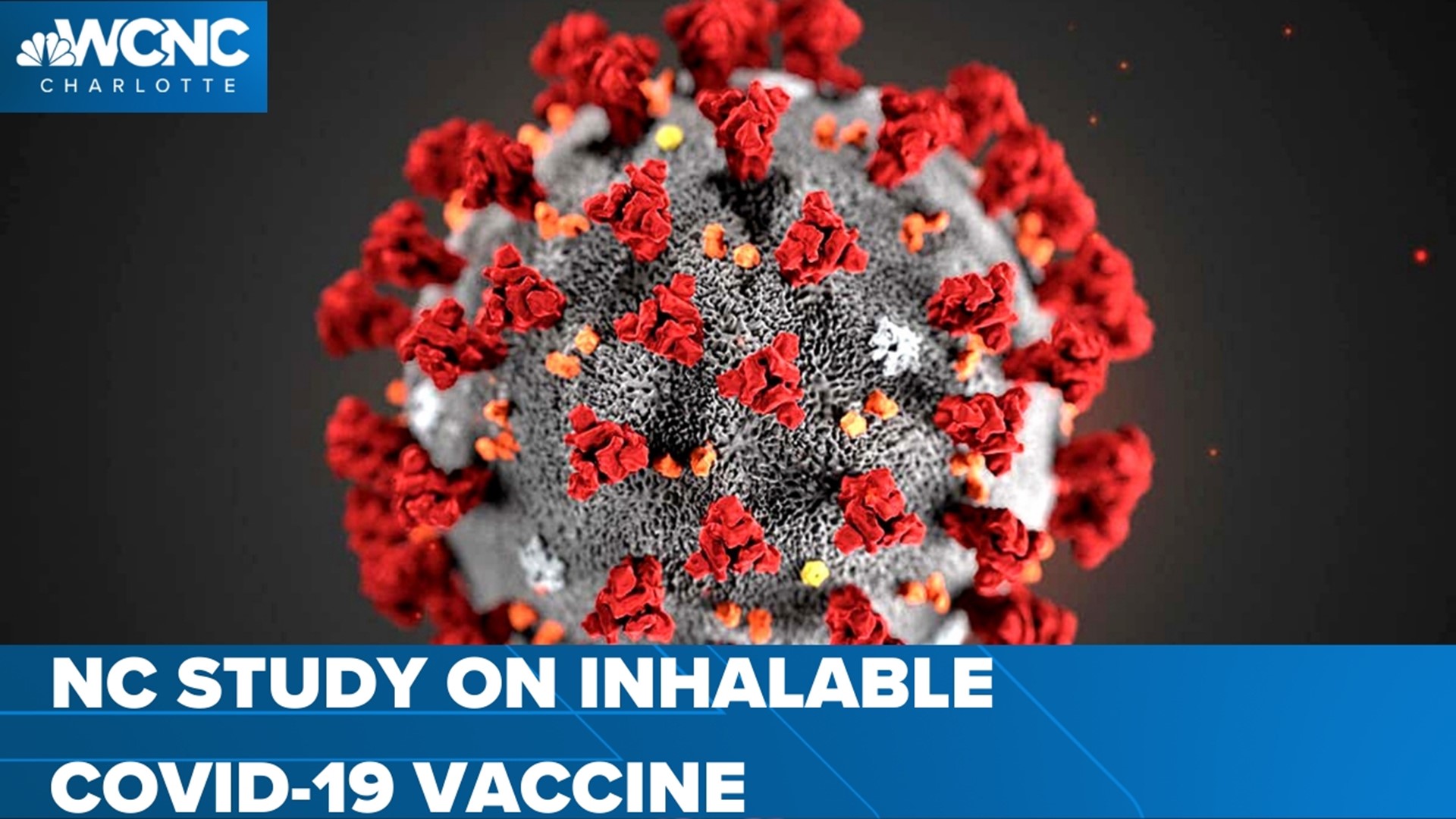RALEIGH, N.C. — COVID-19 is likely here to stay and experts say vaccines and boosters will be critical to keeping future waves at bay.
The more contagious BA.4 and BA.5 variants are becoming more dominant in North Carolina and Mecklenburg County. After a week in the CDC's low COVID-19 community level, Mecklenburg County was upgraded back to the medium level.
With this amount of viral transmission, the CDC recommends staying up to date on vaccines and boosters.
Researchers at NC State University have created an inhalable COVID-19 vaccine and are still studying its benefits and how it could be used as a tool moving forward.
Vaccination rates in North Carolina are stagnant. According to state data, 62% of the state’s total population has completed its initial series, but data shows the number of first doses given each week has been nearly non-existent for months.


Now, a vaccine is approved for all age groups. But vaccine uptake has been slower for children under 5.
Researchers at NC State looking to address some challenges that come with the shots. Current vaccines need to be stored at certain temperatures, given by a medical professional and injected into the muscle, which some researchers say is less efficient at getting into the pulmonary system.
Ke Cheng and other researchers created an inhalable vaccine and tested it in rodents with promising results.
They’ve learned it can be stored at room temperature, potentially could be self-administered through an inhaler, and targets the lungs specifically and effectively.
“We’re facing more transmittable strains like BA.5 or BA.4 and time is of the essence. You can’t lose one day or even two days of time to wait for the vaccine to take effect. It’s better to have the effects immediately after, a few hours for example after that, and that could be saving a lot of lives and block a lot of transmissions,” Cheng said.
He led the development of the prototype.
Cheng said the next step would be another non-human primate study before clinical trial could get started to see if it is safe and effective in humans.
Contact Chloe Leshner at cleshner@wcnc.com and follow her on Facebook, Twitter and Instagram.

